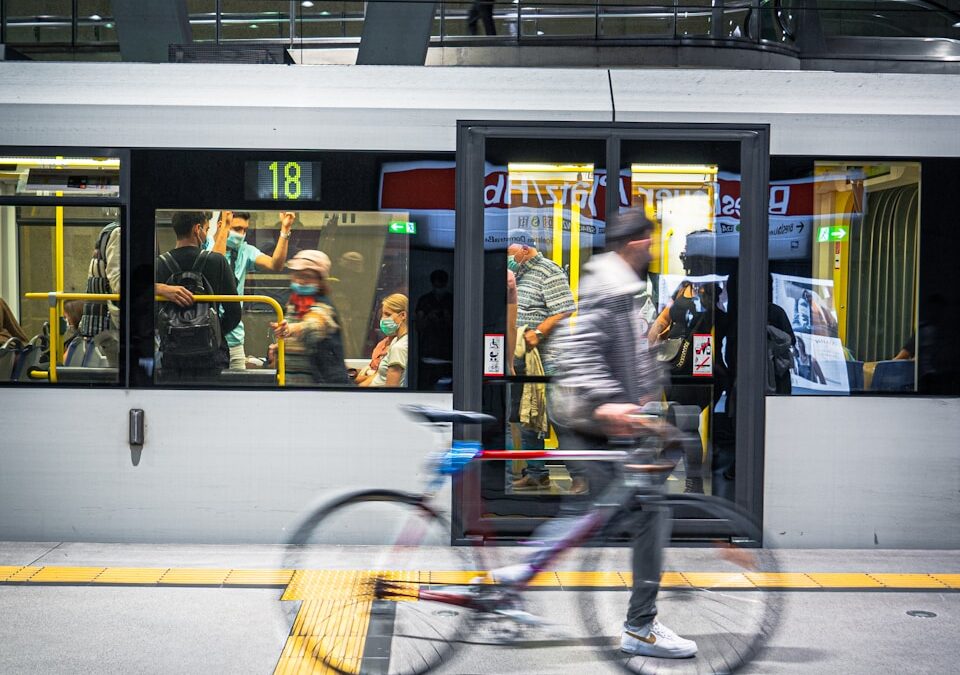Revolutionizing Public Transit in Saudi Arabia and the UAE
The integration of real-time data and AI in public transportation has the potential to transform urban mobility, particularly in rapidly developing cities like Riyadh and Dubai. Real-time data collection and analysis allow for more dynamic and responsive transit systems, improving both route planning and overall service efficiency. By utilizing real-time data, public transportation authorities can monitor vehicle locations, passenger numbers, and traffic conditions, providing a foundation for making informed, timely decisions that enhance the passenger experience.
In Saudi Arabia and the UAE, real-time data plays a crucial role in optimizing bus and metro schedules to meet actual demand. This reduces wait times for passengers, as vehicles can be deployed based on current conditions rather than fixed schedules. For instance, during peak hours or unexpected traffic congestion, real-time data enables transit operators to adjust routes and schedules dynamically, ensuring that services remain reliable and efficient. This not only improves passenger satisfaction but also maximizes the utilization of transit resources.
Moreover, the integration of real-time data facilitates better communication with passengers. Advanced transit apps can provide users with accurate, up-to-date information on vehicle arrivals, delays, and alternative routes. This empowers passengers to make informed travel decisions, reducing uncertainty and enhancing the overall transit experience. In cities like Dubai and Riyadh, where technological innovation is a priority, the use of real-time data in public transportation aligns with broader smart city initiatives, fostering a more connected and efficient urban environment.
AI Technology: Transforming Route Planning and Reducing Wait Times
Artificial intelligence (AI) technology significantly enhances route planning and reduces wait times in public transportation systems. By analyzing vast amounts of data, AI can identify patterns and predict future transit needs, enabling more effective and efficient route optimization. In the context of Saudi Arabia and the UAE, where urban growth and development are rapid, AI-driven route planning ensures that public transportation systems can keep pace with increasing demand.
AI algorithms can process real-time data from various sources, such as traffic sensors, GPS devices, and passenger information systems, to create optimal route plans. These plans can be adjusted in real-time based on changing conditions, ensuring that transit services remain efficient and responsive. For example, if an AI system detects an accident on a major roadway in Riyadh, it can immediately reroute buses to avoid delays, minimizing the impact on passengers’ travel times. This proactive approach to route planning not only reduces wait times but also enhances the reliability of public transportation.
In Dubai, AI technology is being used to predict and manage passenger flow more effectively. By analyzing historical data and real-time inputs, AI systems can forecast periods of high demand and allocate additional resources accordingly. This ensures that buses and trains are available when and where they are needed most, reducing overcrowding and improving service quality. The ability of AI to adapt to real-time conditions and anticipate future needs makes it an invaluable tool for optimizing public transportation in fast-growing urban areas.
Implementing Change: Management Consulting and Executive Coaching
The successful integration of real-time data and AI technology into public transportation systems requires effective change management and executive coaching. Management consulting firms provide the expertise needed to navigate the complexities of technology implementation, ensuring that all stakeholders are aligned and that the transition is smooth. In cities like Riyadh and Dubai, where large-scale infrastructure projects are common, the role of management consulting is crucial in coordinating efforts and achieving desired outcomes.
Executive coaching services are essential for equipping leaders with the skills needed to manage technological transformation. In the context of public transportation, executives must understand both the technical and operational aspects of integrating AI and real-time data. Coaching programs can enhance leadership and management skills, preparing executives to oversee the deployment of new technologies and to communicate effectively with stakeholders, including the public. This is particularly important in regions like the UAE and Saudi Arabia, where public perception can significantly impact the success of new initiatives.
Moreover, project management frameworks tailored to the unique challenges of implementing AI and real-time data solutions are vital. These frameworks help ensure that projects are completed on time, within budget, and to the highest standards. By leveraging project management expertise, transit authorities in Saudi Arabia and the UAE can effectively integrate new technologies, enhancing the efficiency and reliability of public transportation systems. This holistic approach to change management and leadership development ensures that the benefits of real-time data and AI are fully realized, ultimately leading to more seamless and efficient urban mobility.
#RealTimeData #AIinTransportation #RoutePlanning #ReducingWaitTimes #SmartTransitSolutions #PublicTransportationTechnology #RiyadhTransitInnovation #DubaiAITransit #UAETransportationEfficiency #SaudiArabiaPublicTransport

